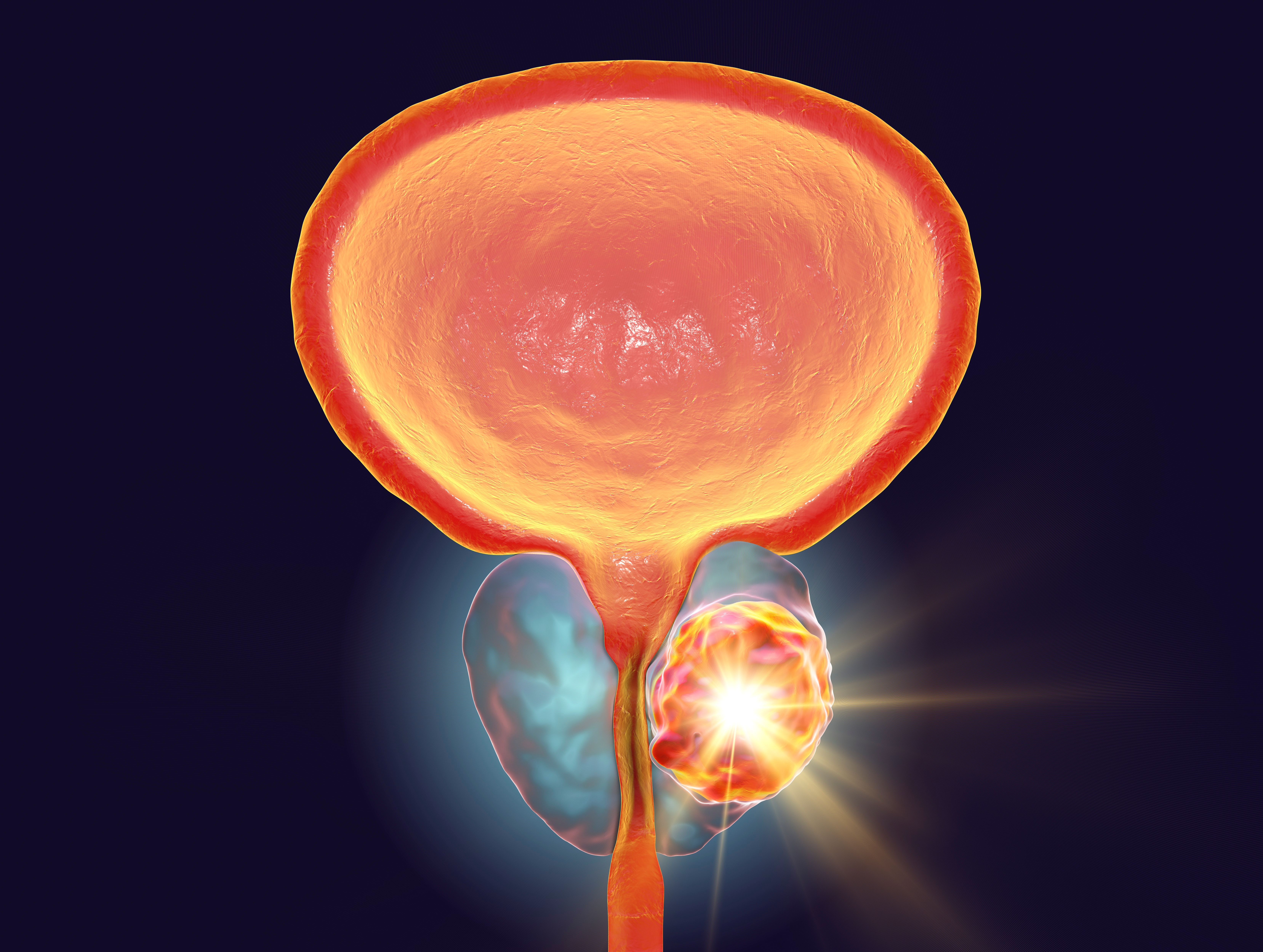About the Phase 1/2 Trial of INKmune
Trial Name: An Open-label, Phase I/IIa Dose Escalation and Expansion Study to Determine the Safety and Clinical Activity of an Immune Priming Cell Therapy (INKmune) in Patients With Metastatic Castration Resistant Prostate Cancer (mCRPC)
ClinicalTrials.gov Identifier: NCT06056791
Sponsor: Inmune Bio, Inc.
Completion Date: November 30, 2025
Contact: Nicole Kay-Mindick, 386 852 2361, nmindick@inmunebio.com
The first patient with metastatic castration-resistant prostate cancer (mCRPC) has been dosed in the phase 1/2 CaRe PC trial (NCT06056791) evaluating INKmune, a biologic therapy.1
INKmune is a natural killer (NK) cell-targeted therapy designed to improve the function of the patient’s own NK cells. The patented, pharmaceutical-grade, replication-incompetent human tumor cell line conjugates to resting NK cells and delivers multiple essential priming signals, akin to treatment with at least 3 cytokines in combination. INKmune is delivered by intravenous (IV) infusion.
The interaction between INKmune and NK ligates multiple activating and co-stimulatory molecules on the NK cell and can enhance its avidity of binding to tumor cells. Tumor-primed NK cells can lyse a variety of NK-resistant tumors, including leukemias, lymphomas, myeloma, and solid tumors.
“Results of immunotherapy trials for mCRPC have been disappointing,” said Matt Rettig, professor of medicine and urology, medical director of the prostate cancer program at the David Geffen School of Medicine at the University of California, Los Angeles, and member of the Jonsson Comprehensive Cancer Center, in a press release. “After many failures using T-cell focused immunotherapy approaches, targeting NK cells—which are abundant in the prostate cancer tumor microenvironment—is a promising and novel strategy. I am optimistic about the therapeutic potential of INKmune, an off-the-shelf innate immune therapy.”
In the open-label CaRe PC trial, up to 3 doses of INKmune will be investigated in male patients with mCRPC. Patients will be given INKmune as outpatient therapy via IV infusion 3 times in the first 2 weeks of treatment without the need for premedication or cytokine support. Patients will be followed for 6 months and approximately 30 patients will be enrolled.2
Investigators will evaluate immune responses observed with INKmune, including changes in numbers of tumor-killing memory-like NK cells in the patient’s blood and the duration of which specialized NK cells stay in the circulation.1 They will also monitor antitumor responses by following the level of prostatic surface antigen in the blood, measuring circulating tumor DNA in the blood, and using artificial intelligence to quantify the number and size of metastatic lesions using piflufolastat F 18, a prostate-specific membrane antigen imaging agent.
Using a novel modified Bayesian design, up to 10 patients will be enrolled at each dose level. Phase 1 of the study will consist of a dose-escalation portion and phase 2 will enroll patients in all dosing cohorts at the same time. Upon the completion of phase 1, the doses deemed safe will be tested simultaneously in phase 2.
Primary end points of the study include to demonstrate the safety and tolerability of INKmune among male patients with mCRPC and to determine which dose of INKmune should be used in a blinded, randomized registration trial. Secondary end points will evaluate the overall clinical efficacy of INKmune.2
“There are 2 key elements for successful immunotherapy. There must be immune cells in the tumor and the drug must convert those immune cells into cancer killing cells,” said Mark Lowdell, PhD, chief scientific officer of INmune Bio and inventor of INKmune, in a press release.1 “Prostate cancer has many resting NK cells, and we believe INKmune will convert those resting NK cells into memory-like NK cells that can attack the tumor.”
REFERENCES:
Immune Bio announces first patient dosed in a phase 1/2 study of Immunity in patients with metastatic castration-resistant prostate cancer. News release. Immune Bio, Inc. January 2, 2024. Accessed January 2, 2024. http://tinyurl.com/bde562vr
Study of INKmuneImmune in Patients With mCRPC (CaRe Prostate) (CaRe). ClinicalTrials.gov. Updated September 29, 2023. Accessed January 2, 2024. https://classic.clinicaltrials.gov/ct2/show/NCT06056791
